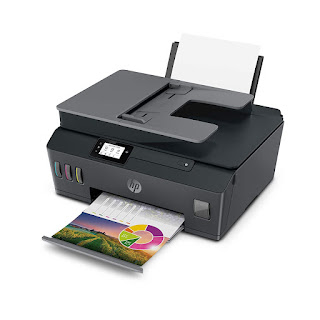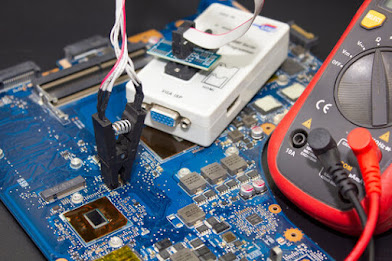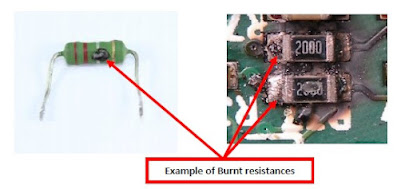💻 HP EliteBook 1030 G2 Freezing on Startup: DIY Repair Guide with Causes & Solutions
Have you ever pressed the power button on your HP EliteBook 1030 G2, only to be met with a frozen screen? Whether you're facing a stuck HP logo, a spinning circle of death, or total unresponsiveness — you're not alone. This freezing issue is a common headache among users, and luckily, you don't need to be a tech genius to fix it.
In this detailed DIY repair guide, we’ll explain:
- Why your 1030 G2 freezes on startup
- Step-by-step solutions to diagnose and fix the issue yourself
- When it’s time to seek professional help
🔍 What Causes the HP EliteBook 1030 G2 to Freeze on Startup?
Startup freezing can be caused by hardware, software, or firmware-related problems. Identifying the root cause is crucial before attempting any repair.
🛠️ Common Causes:
- Corrupted Windows files or updates
- Incompatible drivers or software
- Overheating or dust buildup
- SSD/HDD failure or loose connection
- BIOS/UEFI misconfiguration or corruption
- Faulty RAM or memory slot
- Malware or virus infection
- External devices causing conflicts
- Thermal paste dry-up (on CPU/GPU)
- Outdated BIOS firmware
🧰 DIY Fixes for HP 1030 G2 Freezing on Startup
Each step below addresses a potential root cause. Follow them in order for best results.
✅ Step 1: Basic Checks Before Anything Else
🔌 Disconnect External Devices
Remove all USB drives, dongles, SD cards, or external peripherals.
Why? Faulty or incompatible devices can stall the boot process.
🔁 Perform a Hard Reset
- Power off the laptop.
- Disconnect the AC adapter.
- Hold the Power button for 15–20 seconds.
- Reconnect the charger and power it on.
Purpose: Clears the system of any static power and resets the embedded controller.
🧼 Step 2: Clean Up Internals (Prevent Overheating)
Tools You'll Need:
- Phillips screwdriver
- Soft brush
- Thermal paste (optional)
- Compressed air
🧹 Process:
- Open the back cover of the laptop.
- Blow out dust from the fans, vents, and heatsinks.
- Reapply thermal paste to the CPU/GPU if it looks dry.
- Ensure fan is spinning freely.
🔧 Step 3: Check the RAM (Memory Module)
🧪 What to Do:
- If there are two RAM sticks, try removing one and booting.
- Try swapping the slot.
- Inspect the RAM and slot for dust or corrosion.
Signs of faulty RAM:
- Random freezes
- Beeping sound
- Black screen on startup
💽 Step 4: Check the SSD/Hard Drive
🕵️♂️ Common Signs of Drive Failure:
- Freezes at logo
- Clicking sound from drive
- Slow or failed boot
🔍 Actions:
- Reseat the SSD.
- Connect it to another computer via SATA/USB adapter and run CHKDSK or CrystalDiskInfo to test health.
- If drive is damaged, clone or replace it and reinstall Windows.
🛠️ Step 5: Boot into Safe Mode
How to Enter Safe Mode:
- Turn on and force-shutdown 3 times at the HP logo to trigger Windows Recovery Environment (WinRE).
- Go to: Troubleshoot → Advanced Options → Startup Settings → Restart
- Press F4 to boot into Safe Mode.
In Safe Mode:
- Uninstall recent software
- Update or roll back drivers
- Run antivirus scans
🔄 Step 6: Perform System Restore
Use This If:
The problem started after a Windows update or new driver install.
How to Do It:
- Boot into WinRE.
- Go to: Troubleshoot → Advanced Options → System Restore
- Choose a restore point before the issue started.
🔄 Step 7: BIOS/UEFI Reset and Update
⚙️ Reset BIOS Settings:
- Press F10 repeatedly on startup to enter BIOS.
- Press F9 to load defaults.
- Save and exit.
⬆️ Update BIOS:
- Go to HP Drivers & Software
- Download latest BIOS for EliteBook 1030 G2
- Follow on-screen instructions to install.
Note: Don’t power off during BIOS update.
💡 Step 8: Reinstall Windows (Clean Install)
Reinstall Process:
- Create a bootable USB using Windows Media Creation Tool.
- Plug it into the laptop.
- Boot into BIOS (F9) → Choose USB as first boot.
- Delete existing partitions and install fresh copy of Windows.
Warning: Backup files if possible before clean install.
🛡️ Step 9: Scan for Malware
Why It Helps:
Some persistent viruses and rootkits can cause startup failures.
Tools to Use:
- Malwarebytes Free
- Windows Defender Offline
- Kaspersky Rescue Disk (bootable ISO)
🧪 Step 10: Test Motherboard or Embedded Controller
If:
- Nothing above works
- Fans spin but no display
- Freeze happens before BIOS/UEFI
Your motherboard’s EC (Embedded Controller) or power circuit may be damaged.
Repair may require:
- BIOS chip replacement
- EC reprogramming
- Power rail testing using multimeter
Recommendation: Seek professional chip-level repair help.
🚨 Bonus: Preventing Future Freezes
- Keep Windows and drivers updated
- Avoid shady software or torrents
- Regularly clean dust buildup
- Monitor system temperatures
- Run antivirus scans weekly
- Replace thermal paste every 1–2 years
🧠 Quick Troubleshooting Summary
| Symptom | Likely Cause | Quick Fix |
|---|---|---|
| Freezes on logo | SSD/Windows corruption | Check SSD & Reinstall OS |
| Fans spin, no display | RAM or Motherboard | Test RAM or check EC |
| Stuck after update | Driver conflict | Boot Safe Mode & Roll Back |
| Freezes randomly | Overheating or malware | Clean fans, scan for viruses |
| BIOS not loading | BIOS corrupt or EC | Reset BIOS, update firmware |
🎯 Final Thoughts: DIY Saves Money & Builds Confidence
Freezing issues on the HP EliteBook 1030 G2 can be frustrating, but they’re usually solvable — even from the comfort of your home. This DIY repair guide covered both software troubleshooting and hardware inspections, giving you a full toolkit to fix the problem.
If the problem persists despite your best efforts, don’t hesitate to reach out to a certified technician. But in many cases, a clean install, RAM reseat, or a little dusting is all it takes to bring your device back to life.
📣 Have You Fixed Your HP 1030 G2?
Leave a comment below or share your experience. If this post helped you, consider sharing it with others who might be stuck in the same startup freeze.
Stay tech-smart and confident — because DIY fixes are the future!






Comments
Post a Comment